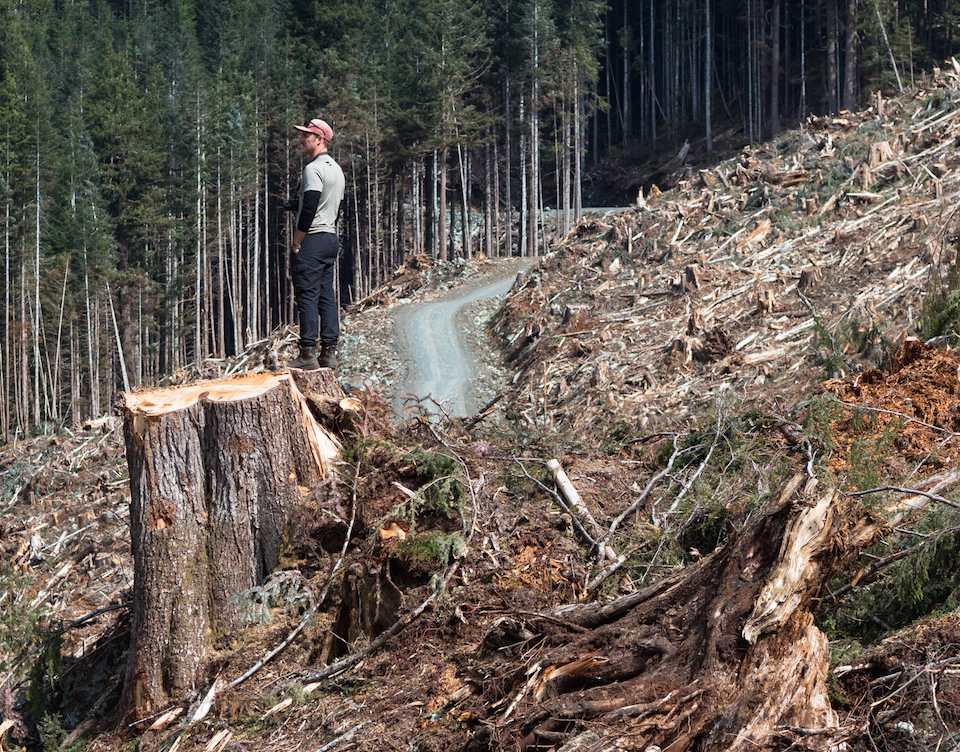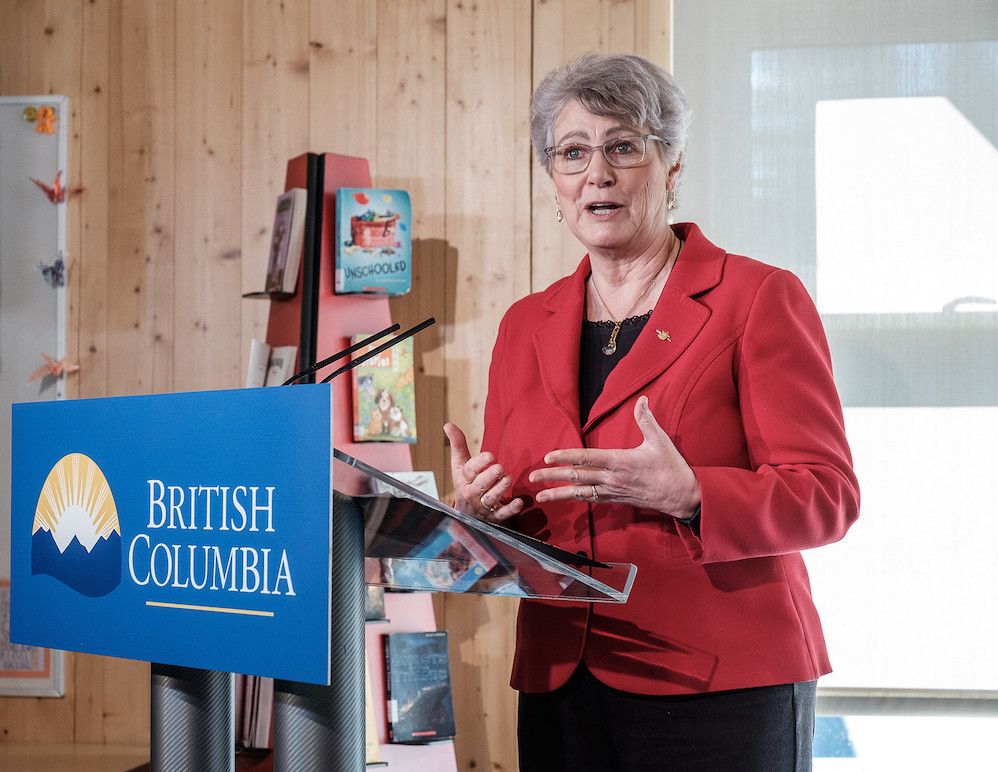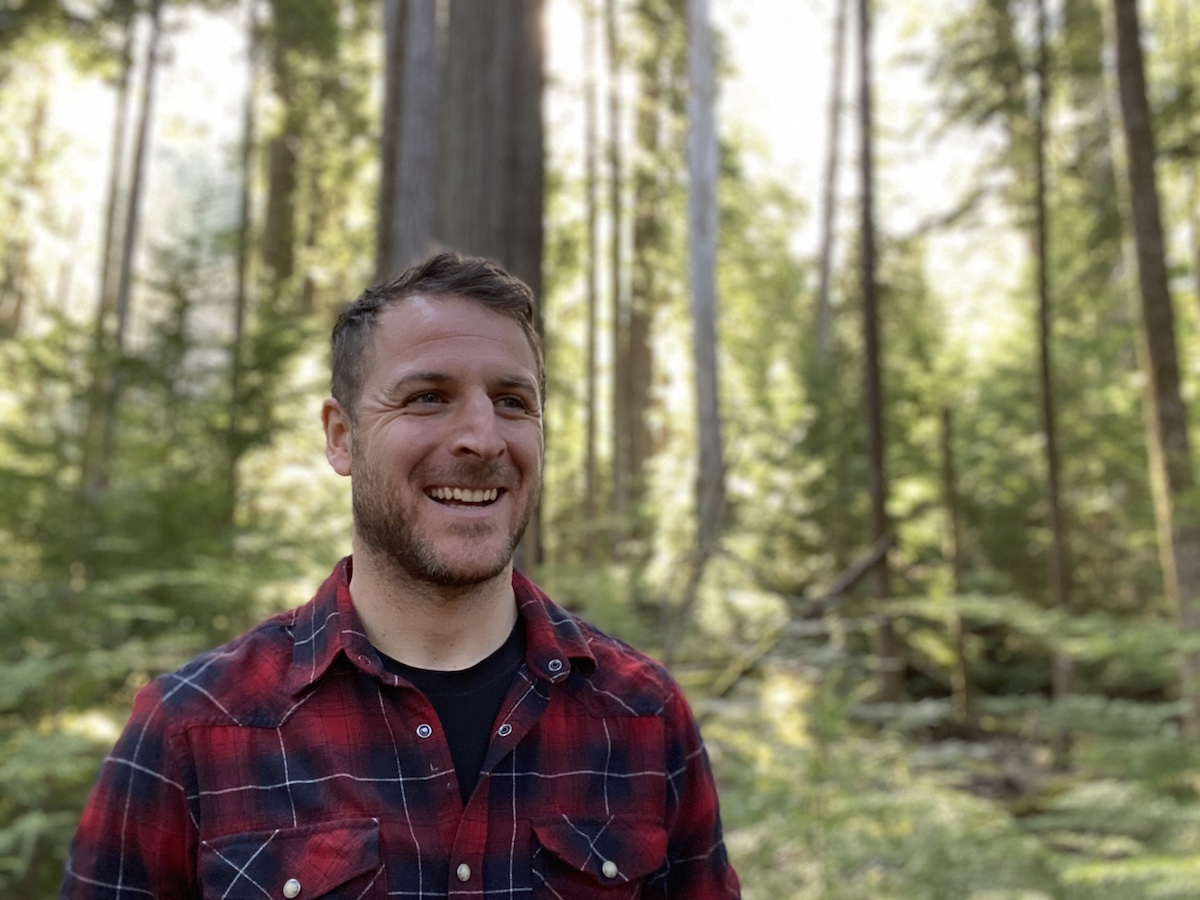 Mar 15 2021
Mar 15 2021Critics cut into B.C. government’s protection plan for old-growth forests
National Observer
March 15, 2021

Environmental groups and the BC Green Party say the province’s failure to defer old-growth logging will exhaust the last remaining stands while a new forestry plan is developed. Photo by Louis Bockner
B.C.’s forestry minister made clear a moratorium on old-growth logging is off the table as she responded to critics of the government’s progress on a promise to overhaul its approach to forestry on Thursday.
BC Green Party Leader Sonia Furstenau pressed Minister Katrine Conroy during question period tooutline what meaningful actions government was taking to immediately protect critical old-growth forests, suggesting instead that the NDP was employing the “old strategy of talk and log.”
The questions arose after a coalition of environmental groups issued the province failing grades six months after it promised to act on recommendations stemming from a review of B.C.’s old-growth forestry practices.
Government intends to implement the old-growth panel recommendations to develop new holistic approaches to old-growth forests, Conroy said, adding a divisive, patchwork approach to the management of ancient forests took place in the past.
“Those who are calling for a return to the status quo are putting B.C.’s majestic old-growth and vital biodiversity at risk, and those who are calling for an immediate moratorium are ignoring the needs of thousands of workers and families in forest-dependent communities right across our province,” she said.
“We want old-growth forests to be appreciated by people today, and in years to come,” Conroy said.
“It’s also a priority for our government to support good jobs for people in B.C.’s forestry sector.”

The old-growth panel’s recommendations did not call for a complete moratorium on old-growth logging, but rather a deferral of operations within the first six months of the staged process to shift to a new approach to forestry, Furstenau clarified.
“The government has not responded to the advice that was given,” she said.
“The first step is the immediate interim protection across B.C. to create breathing room and protect what we have left.”
“When the minister says, ‘We can’t rush this,’ it’s like hearing we can’t rush CPR when someone needs it,” says Torrance Coste of the Wilderness Committee on the urgent need for the government to defer logging in B.C.’s #oldgrowth forests. #bcpoli
Government has already initiated two of the immediate recommendations, Conroy said, pointing to the collaboration with First Nations to establish old-growth logging deferrals in nine areas across the province.
Action has also started on other recommendations to improve public information and compliance, Conroy said.
“While we’ve taken these important first steps as recommended by the panel within six months, we know there is much more work to do,” Conroy said.
“We are dedicated to continuing in this important work with government-to-government discussions with Indigenous leaders, and talking to our partners in labour, industry, environmental organizations and communities.”
Torrance Coste, a campaigner with the Wilderness Committee — one of the trio of environmental groups that issued the negative report card on the province’s progress around the panel’s recommendations — agreed it was a critical priority for government to engage with First Nations to make the focus shift from timber harvesting to prioritizing ecological integrity in old-growth forestry management.
However, during that lengthy consultation process, it is urgent to protect what little remains of B.C.’s big-tree, old-growth forest ecosystems, Coste said.

“Absolutely, government needs to engage with First Nations. These forests grow in their territories and any solution needs to be centred in Indigenous rights,” Coste said.
“But if 10 years down the road, First Nations want to make the choice to either log their old-growth or protect it, they won’t have that choice if government doesn’t implement those deferrals now.”
The Wilderness Committee, along with the Ancient Forest Alliance and the Sierra Club BC, wants the province to meet the old-growth panel’s recommendations to develop a staged plan for its forestry transition, complete with concrete milestones and funding for the process, particularly for First Nations where logging deferral will cause economic hardship.
The Ministry of Forests, Lands and Natural Resource Operations (FLNRO) did not clarify if any more logging deferrals are planned — as promised by the NDP during the election — or whether concrete funds or timelines for the transition are being established.
“The economic impacts of its recommendations need to be analyzed,” FLNRO said in an email Friday.
The panel’s timeline for recommendations indicated when work should be started — not completed — and the timeline was developed prior to the pandemic, the ministry added.
“COVID-19 is impacting every community and (First) Nation in the province, presenting added challenges to the engagement process,” FLNRO said.
“That said, we are moving forward with this engagement process, but it will take time.”
Coste disputed there is any time left to avoid old-growth deferrals, particularly for the most at-risk, valley bottom old-growth, as it’s more easily accessible, worth more, and being targeted by logging companies.
There is only around 400,000 hectares of big-tree old-growth left in the province, he said.
“What you picture when you close your eyes and think of old-growth forest, that’s very, very scarce,” Coste said.
“You might think it’ll get protected because that’s what the panel recommended.
“But, when the minister says, ‘We can’t rush this,’ it’s like hearing we can’t rush CPR when someone needs it.”
Rochelle Baker / Local Journalism Initiative / Canada’s National Observer
[Editor’s Note: This story was updated Monday morning to correct a figure in this story that stated there were 200,000 hectares of old growth in B.C. when it should read there are 400,000 hectares.]
Read the original article





